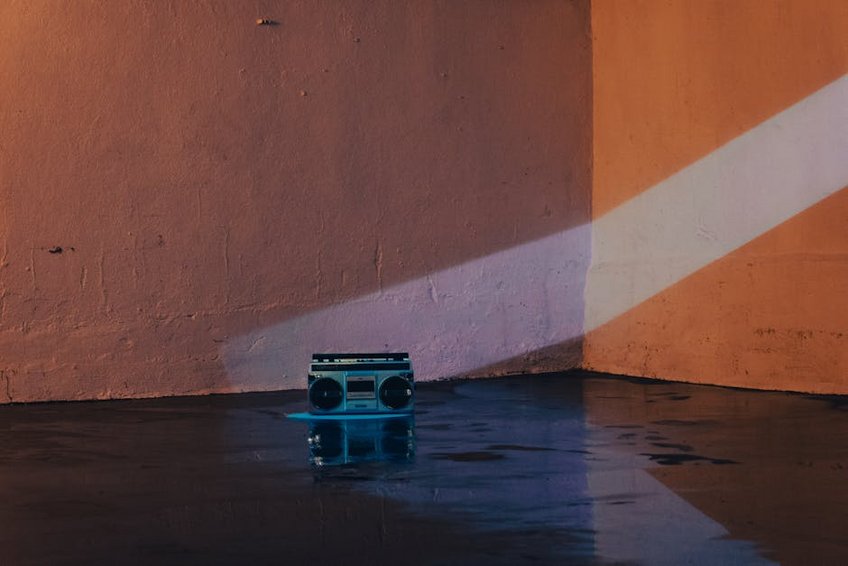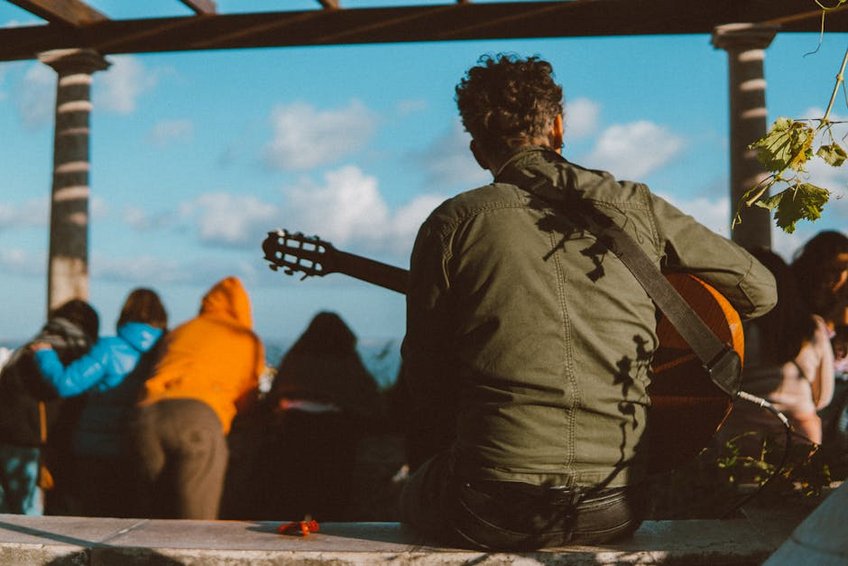Lisbon Fado Nights: An Unforgettable Musical Journey
There’s something truly magical about wandering through Lisbon’s ancient Alfama district as the sun sets and hearing the soulful, melancholic strains of Fado music drifting from tiny tavernas. Lisbon Fado nights represent one of Portugal’s most cherished cultural treasures, offering visitors an authentic glimpse into the Portuguese soul through music that speaks of love, loss, and longing. This UNESCO-recognized intangible cultural heritage isn’t just a performance—it’s a profound emotional experience that connects you directly with Lisbon’s history and heart. Whether you’re a music enthusiast or simply seeking authentic cultural experiences, attending a Fado evening should be at the top of your Lisbon itinerary. The combination of exceptional vocal performances, traditional Portuguese guitar accompaniment, and intimate settings creates memories that linger long after your vacation ends. You’ll discover why Fado translates to “fate” or “destiny” as you become swept up in the raw emotion of this unique musical tradition that captures the very essence of the Portuguese concept of saudade—a deep emotional state of nostalgic longing.
Lisbon Fado Nights Essential Information
Understanding the fundamentals of Fado will significantly enhance your appreciation of this beautiful art form during your Lisbon Fado nights experience. Fado emerged in the early 19th century in Lisbon’s working-class neighborhoods, particularly in Alfama, Mouraria, and Bairro Alto. The music typically features a solo singer (fadista) accompanied by the Portuguese guitar—a pear-shaped instrument with twelve strings—and sometimes a classical guitar. There are two main styles: Fado de Lisboa (Lisbon style) and Fado de Coimbra (associated with university traditions). The Lisbon style, which you’ll experience during Lisbon Fado nights, is generally more dramatic and performed in traditional restaurants and Fado houses called “casas de fado.” The lyrics often explore themes of destiny, ocean voyages, and everyday struggles, delivered with profound emotion that transcends language barriers. Even if you don’t understand Portuguese, the raw emotion in the fadista’s voice will move you deeply.
What Makes Authentic Fado Experiences
- Genuine Fado performances occur in intimate settings, typically small restaurants or dedicated Fado houses with traditional decor and excellent acoustics that enhance the emotional impact
- Authentic Lisbon Fado nights feature professional fadistas who have dedicated years to mastering this art form, often accompanied by skilled Portuguese guitar players who maintain the traditional techniques
- During performances, audiences maintain respectful silence—talking during songs is considered extremely rude, and you’ll notice that even serving staff pause their work when music begins
- Budget options (€25-40 per person): Several bars and smaller establishments offer Fado performances with drink minimums rather than full dinner requirements, perfect for those wanting the cultural experience without the gourmet meal expense
- Mid-range experiences (€45-75 per person): Traditional Fado houses with set menus including dinner and performance offer excellent value, typically featuring multiple fadistas throughout the evening with authentic atmosphere and good food
- Luxury experiences (€80-150+ per person): High-end Fado restaurants featuring famous fadistas, exceptional Portuguese cuisine with wine pairings, and premium seating in historically significant venues for those seeking a truly memorable evening
- Official Lisbon Tourism Website
- Museu do Fado Official Site
Key Elements of Fado Culture
Beyond the musical performance itself, Lisbon Fado nights encompass a complete cultural experience that includes traditional Portuguese cuisine, specific etiquette expectations, and a particular atmosphere that transports you to another era. The best Fado houses typically serve excellent traditional food, making dinner part of the experience rather than just background entertainment. You’ll want to arrive early to enjoy your meal before the performances begin, as most venues don’t allow entry once the music starts. Dress is generally smart casual—while you don’t need formal attire, you’ll feel more comfortable blending in with locals who treat Fado with the respect it deserves. The typical structure involves performances throughout the evening, with different fadistas taking turns, allowing you to experience various styles and interpretations of this beautiful art form.

Lisbon Fado Nights Planning Your Trip
Proper planning ensures you get the most from your Lisbon Fado nights experience, from selecting the right venue to understanding timing and reservation requirements. The Fado scene in Lisbon has both tourist-oriented establishments and authentic local spots, each offering different experiences at varying price points. Generally, the more famous houses in Alfama and Bairro Alto require reservations days or even weeks in advance, especially during peak tourist season from April through October. Many venues offer two seatings—one around 7:30-8:00 PM and another around 9:30-10:00 PM—with the later performances often feeling more authentic as they attract knowledgeable local audiences. Your budget will determine whether you opt for a dinner show (typically more expensive but includes a full meal) or just drinks during the performance. Regardless of your choice, arriving with realistic expectations about the solemn, respectful atmosphere will help you appreciate this profound cultural experience fully.
Best Time to Experience Lisbon Fado Nights
Lisbon enjoys a Mediterranean climate with mild winters and warm summers, making Lisbon Fado nights enjoyable year-round, though each season offers distinct advantages. Spring (March-May) brings pleasant temperatures perfect for exploring before your evening performance, with fewer crowds than summer. Summer (June-August) offers the liveliest atmosphere with more performances available, but requires earlier reservations and deals with hotter weather. Autumn (September-November) provides a romantic ambiance with cooler evenings and beautiful light, while winter (December-February) offers the most authentic experience with predominantly local audiences. Weeknights generally feel more intimate than weekends, and consider that many Fado houses close on Sundays and Mondays. The rainy season from November to February might actually enhance the experience, as the melancholy weather complements Fado’s emotional themes perfectly.
Budget Planning and Costs for Lisbon Fado Nights
Essential Preparation Checklist
Preparing properly for your Lisbon Fado nights ensures you fully appreciate this unique experience without logistical frustrations. First, research venues and make reservations at least several days in advance—popular spots like Clube de Fado or Sr. Vinho often book up weeks ahead during high season. Check whether the venue requires dinner reservations or accepts guests for drinks only during performances. Plan your transportation carefully—many Fado houses are located in areas with limited parking and narrow streets better accessed by taxi or public transport. Learn a few basic Portuguese phrases of appreciation like “bravo” or “muito obrigado” to show respect to performers. Dress appropriately in smart casual attire to match the respectful atmosphere, and bring cash as some smaller establishments might not accept credit cards. Most importantly, prepare yourself emotionally to be moved by the powerful performance you’re about to witness.
Lisbon Fado Nights Top Attractions and Activities
Beyond the performances themselves, Lisbon offers numerous Fado-related attractions that deepen your understanding and appreciation of this musical tradition during your Lisbon Fado nights experience. The Museu do Fado in Alfama provides excellent historical context with exhibits tracing Fado’s evolution from its 19th-century origins to contemporary interpretations. Walking through the birthplace neighborhoods of Fado—particularly Alfama and Mouraria—with their narrow cobblestone streets and traditional architecture helps you understand the environment that gave birth to this music. Many tour companies offer specialized Fado walks that combine historical information with visits to lesser-known Fado venues. For truly dedicated enthusiasts, consider taking a Portuguese guitar workshop or short course to understand the technical aspects behind the distinctive sound that characterizes Lisbon Fado nights. These complementary activities enrich your evening performances by providing cultural and historical context that transforms them from mere entertainment to profound cultural immersion.
Must-See Highlights for Fado Enthusiasts
Certain venues and experiences stand out as essential components of any comprehensive Lisbon Fado nights itinerary. Clube de Fado, located in a beautifully restored medieval building in Alfama, consistently ranks among Lisbon’s top Fado houses with exceptional acoustics and internationally renowned performers. Adega Machado in Bairro Alto offers a more theatrical experience in a historic venue that has hosted Fado since 1937. For something more intimate, Tasca do Chico in Bairro Alto provides an authentic local atmosphere where amateur fadistas sometimes join professionals in impromptu sessions. Beyond performances, the Fado Museum should be your first stop for historical context, featuring listening stations, instruments, and exhibits on legendary fadistas like Amália Rodrigues. Don’t miss the opportunity to simply wander through Alfama in the evening, letting the sound of Fado guide you to unexpected discoveries in this labyrinthine neighborhood where the music feels most at home.
Hidden Gems and Local Favorites
While the famous Fado houses offer guaranteed quality, seeking out lesser-known venues can provide more authentic Lisbon Fado nights experiences favored by locals. Parreirinha de Alfama, run by the family of legendary fadista Argentina Santos, offers an intimate atmosphere with superb traditional food. A Baiuca in Alfama features spontaneous performances where locals might burst into song, creating a wonderfully unpredictable evening. For something completely different, Fado in Chiado offers afternoon performances in a concert setting rather than restaurant environment, perfect for those who want to focus solely on the music. Beyond the established venues, keep an ear out for “Fado Vadio” (wandering or amateur Fado) that sometimes occurs spontaneously in traditional bars, particularly in the Mouraria neighborhood. These unexpected encounters often provide the most memorable moments, reminding you that Fado remains a living tradition rather than just a performance for tourists.
Lisbon Fado Nights Practical Travel Information
Navigating the practical aspects of experiencing Lisbon Fado nights requires understanding transportation options, accommodation choices, and timing considerations specific to these evening cultural events. Lisbon’s compact historic center means many Fado houses cluster in walkable areas, particularly in Alfama and Bairro Alto, though the hilly terrain and cobblestone streets present challenges for those with mobility issues. Public transportation runs until approximately 1:00 AM, but taxis and ride-sharing services like Uber or Bolt provide convenient options for returning to your accommodation after late performances. When selecting where to stay, consider proximity to Fado districts—Alfama, Baixa, and Bairro Alto offer the easiest access but can be noisy at night, while quieter neighborhoods like Estrela or Príncipe Real require transportation but offer more restful sleep. Regardless of where you stay, planning your Lisbon Fado nights as the centerpiece of your evenings rather than trying to combine them with other activities will ensure you fully appreciate this immersive experience without rushing.
| Category | Options/Features | Price Range (USD) |
|---|---|---|
| Transportation | Taxi from city center to Fado districts, Uber/Bolt services, public transportation passes | $5-15 per ride |
| Accommodation | Hotels in Alfama/Bairro Alto, boutique hotels in central locations, apartments with kitchen facilities | $80-250 per night |
| Performance Tickets | Dinner shows, drink minimum performances, museum entrance fees, guided Fado walks | $25-150 per person |


